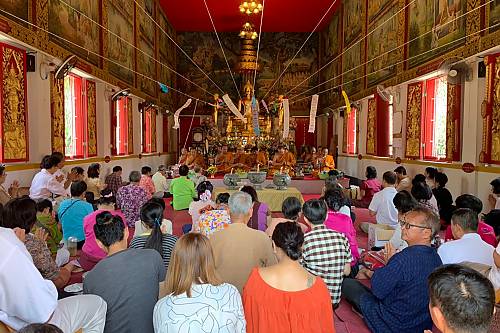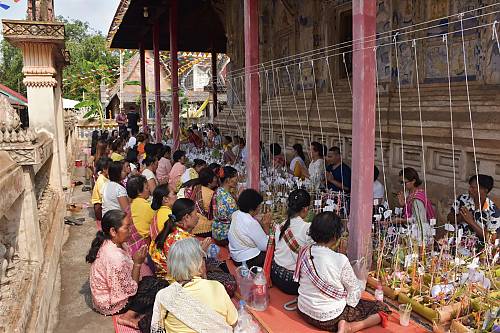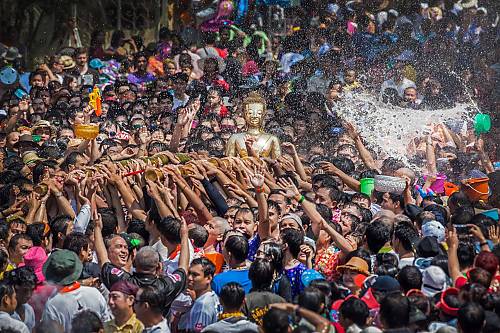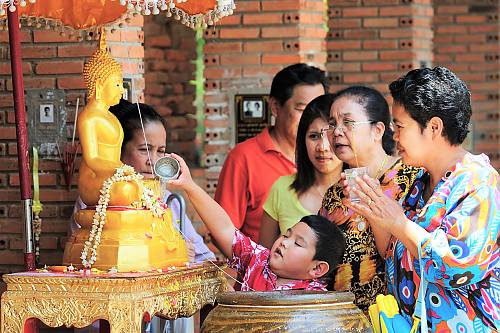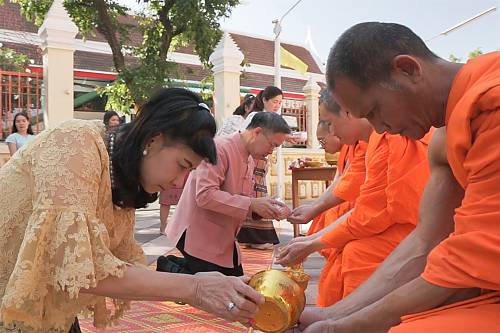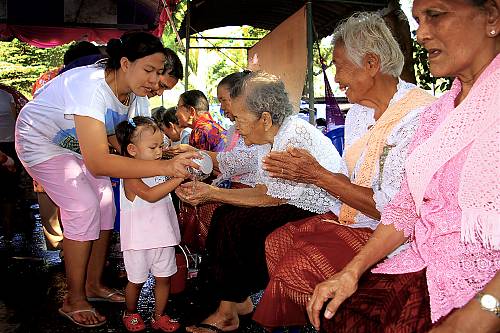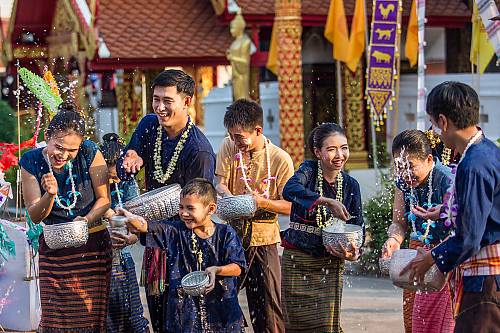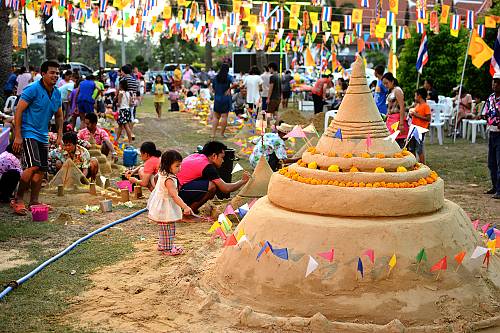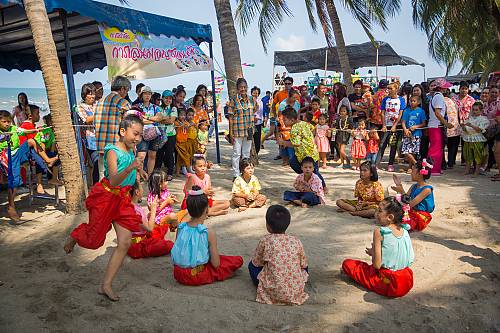Songkran in Thailand, traditional Thai New Year festival
Inscribed in 2023 (18.COM) on the Representative List of the Intangible Cultural Heritage of Humanity

In Thailand, Songkran refers to the sun’s annual passing into the Aries constellation, the first sign of the Zodiac, which marks the traditional start of the new year. Occurring in mid-April after the rice harvest, it is a time when people reunite with their families and pay their respects to older adults, ancestors and sacred Buddha images. Pouring water is a significant act during Songkran, symbolizing cleansing, reverence and good fortune. Other activities include bathing important Buddha images, splashing water on family and friends, folk plays, games, music and feasting. The tradition is passed on through participation in the festivities. Parents transmit the tradition to their children orally through regular social and family interactions. Educational institutes, government agencies, the media and Thai astrologers also play an important role in preserving, promoting and transmitting the astrological knowledge and wisdom related to Songkran. Songkran promotes community cooperation, unity and forgiveness. It is viewed as a time to symbolically wash away misfortunes, pray for prosperity for the coming year, reunite with family members, and honour ancestors and older adults. Furthermore, by emphasizing the importance of older adults and of family, Songkran helps to combat loneliness and social isolation.
